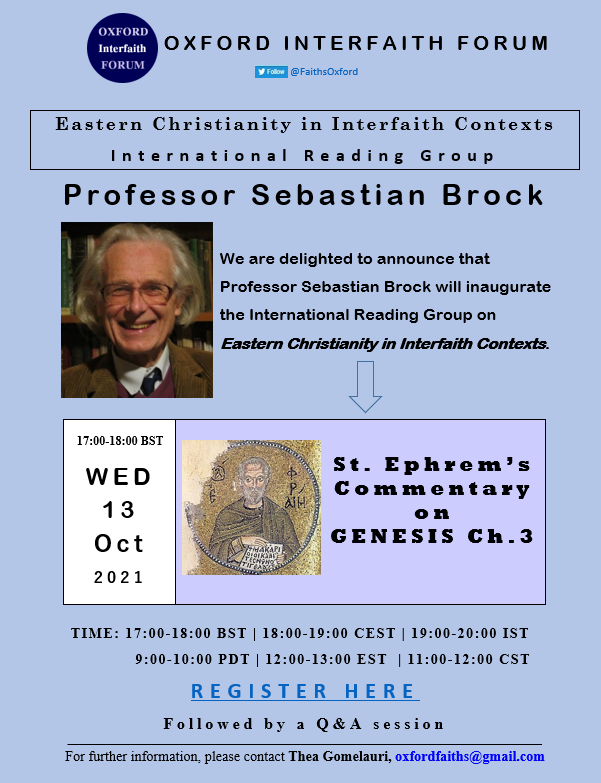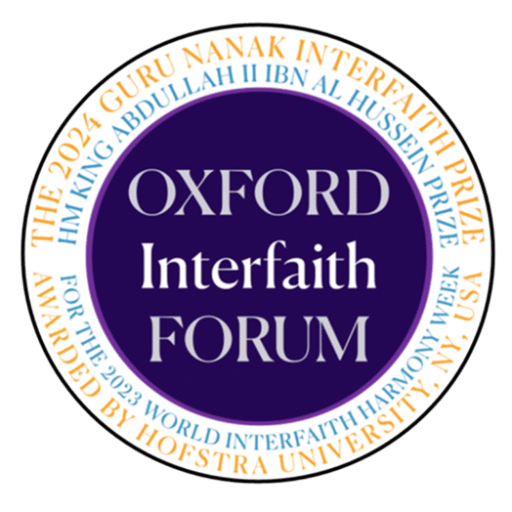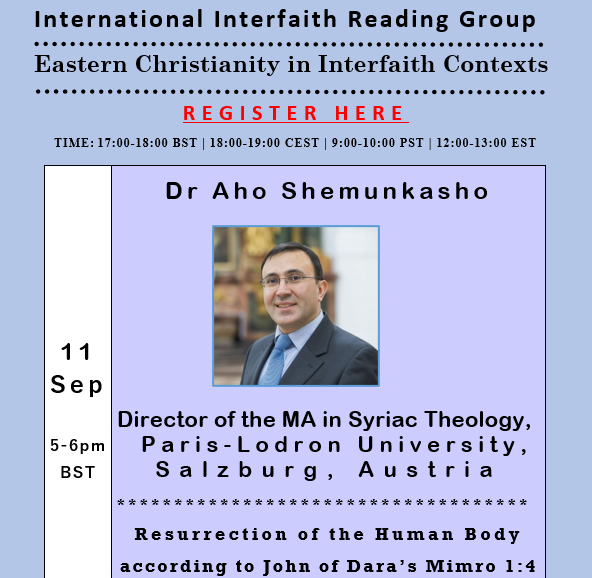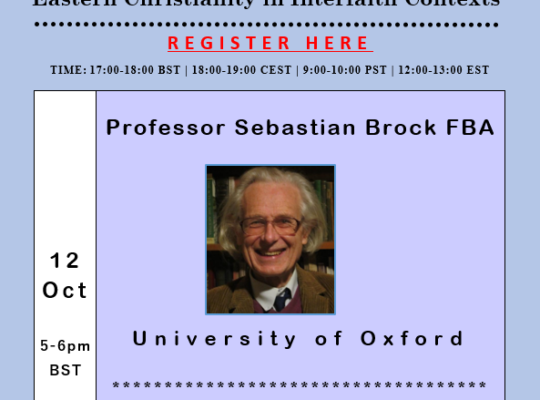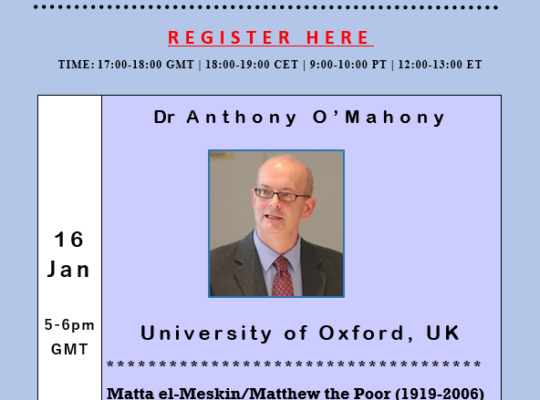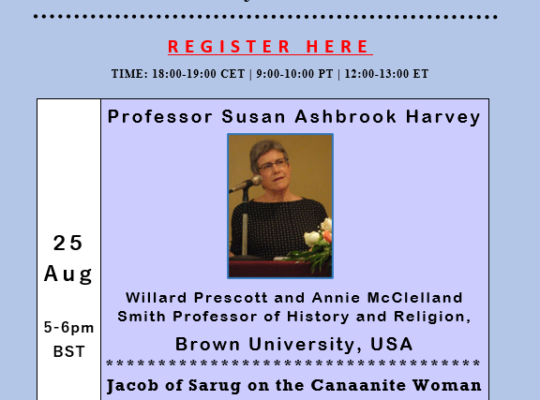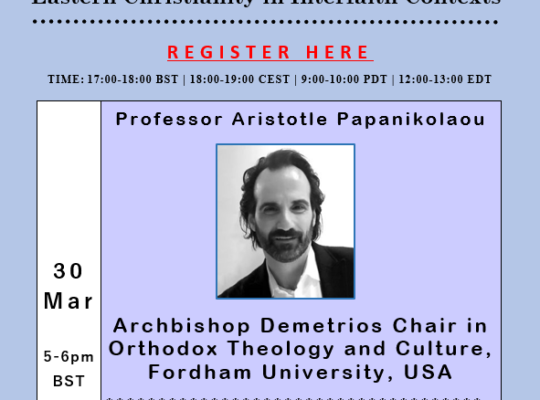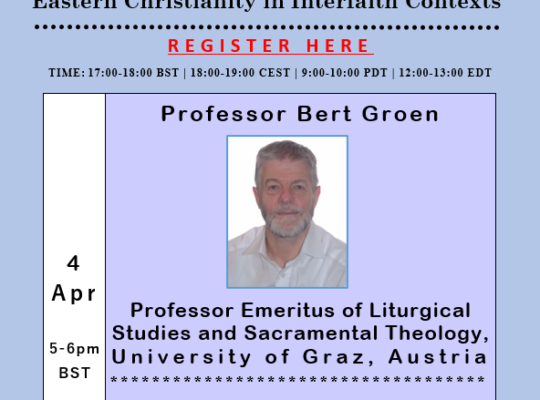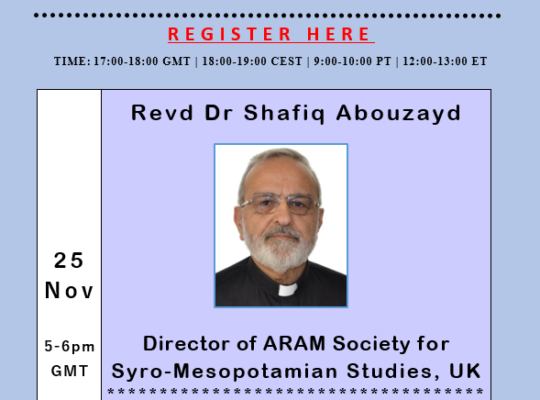11 September, 2023
We are deeply honoured to welcome Dr Aho Shemunkasho, Director of the MA in Syriac Theology in Paris-Lodron University of Salzburg, Austria, to lead a session of the International Interfaith Reading Group on Eastern Christianity in Interfaith Contexts.
Here are the details of this fascinating session.
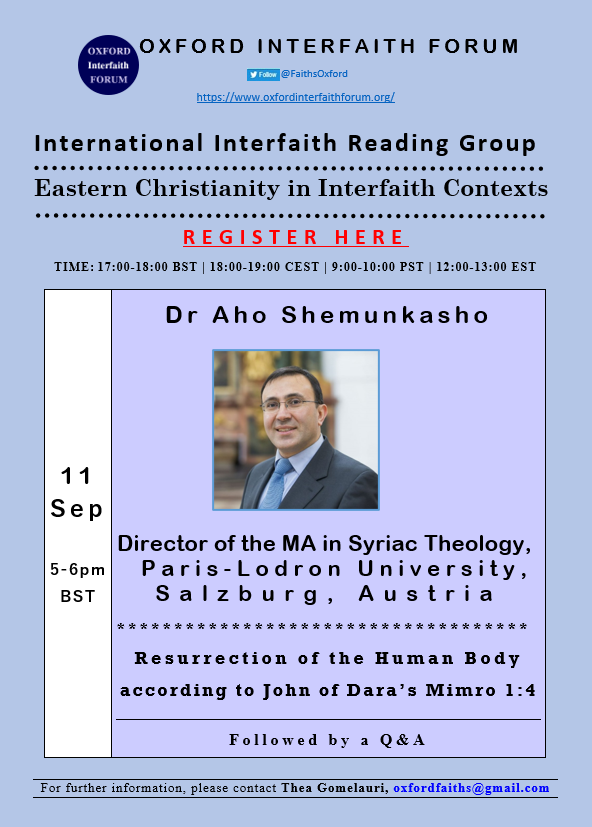
Title: Resurrection of the human body according to John of Dara’s Mimro I:4: “The bodies, which dissolve and change their shape after the departure of the soul, will be resurrected once again and the souls will return to them to receive their future rewards.”
Abstract: The doctrine of life after death is a key aspect in Christian faith and contains the resurrection of the human body. The incomprehensible mystery of the kind of resurrection captivated John of Dara, a Syriac Orthodox bishop from the 9th century. With his sincere interest in the heavenly word, John of Dara draws his attention to the renewal of the world and within it the resurrection of the human body. He composed four mimre on the topic, in addition to a mimro on the divine resurrection of Jesus Christ (Easter).
Attempting to explore the manner of resurrection, John emphasises the uniqueness of the human being, existing of body and soul in this life. Likewise in the renewed future world that each person is supposed to have a physical body and a spiritual soul. In explaining this, mimro one, chapter four highlights biblical references and selects a few natural metaphors. Human conscience anticipates life after death.
https://www.gorgiaspress.com/john-of-daras-four-treatises-on-the-resurrection-of-human-bodies
Speaker: Dr Aho Shemunkasho, director of the MA in Syriac Theology in Paris-Lodron University of Salzburg, Austria.
Speaker’s biography: Aho Shemunkasho edited and translated the four mimre of John of Dara On the Resurrection of Human Bodies. He is a Syriac native speaker from Turabdin, studied in Paderborn and Oxford. He introduced Syriac-Orthodox religious education to state schools in North-Rhine Westphalia, Germany, initiated an MA in Syriac Theology and built up a student house, Beth Suryoye, for Syriac theological formation in Salzburg, Austria.
Chair: Professor Sebastian Brock FBA, University of Oxford, UK
Date: 11 September, 2023
Time: 17:00-18:00 BST | 9:00-10:00 PDT | 12:00-13:00 EDT
Venue: Online
After registering, you will receive a Zoom email, on the day of the event, containing information about joining the meeting. If you do not see the Zoom email in your inbox, please, check your spam folder.
If you would like to join the Eastern Christianity in Interfaith Contexts Reading Group, please sign up here.
Related Sessions
- The Peshitta and the Making of the Antioch Bible
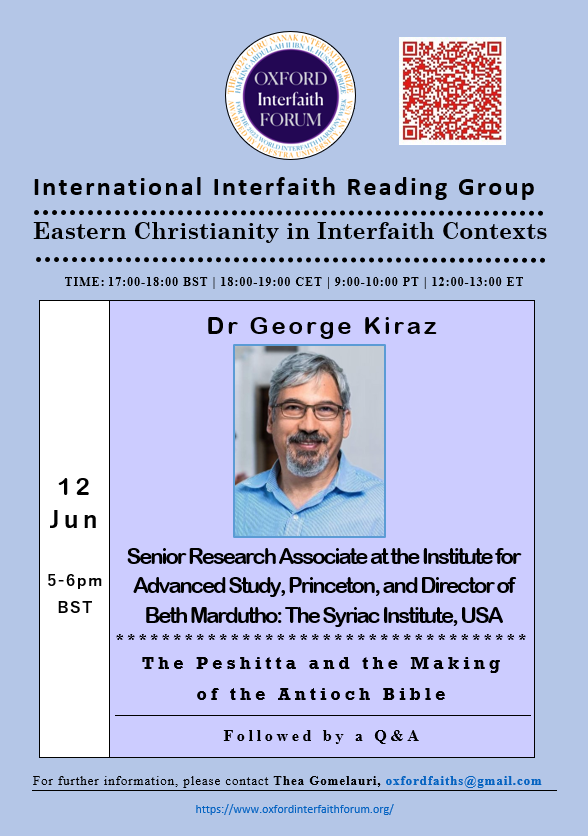
- Narsai’s Memra 49, on Adam and Eve: O Instructive Fault!
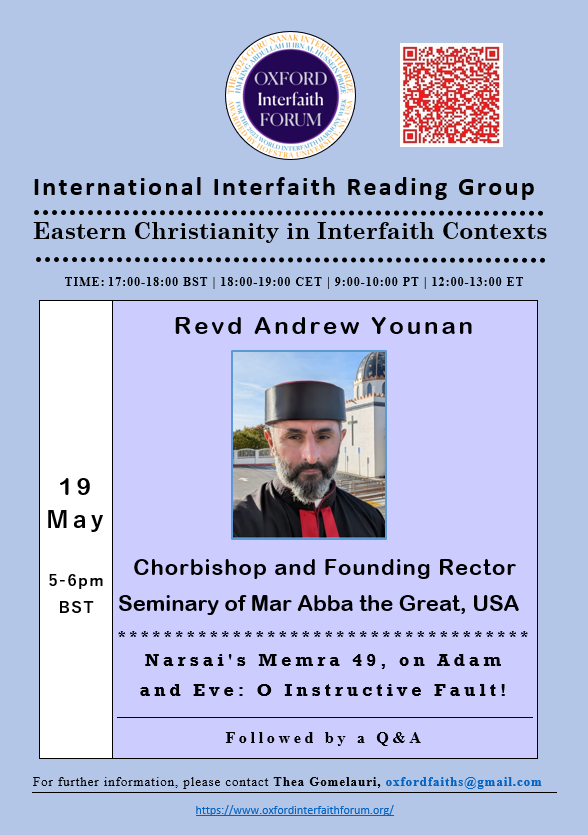
- Basil of Caesarea and Gregory of Nazianzus on the Problem with the Devil
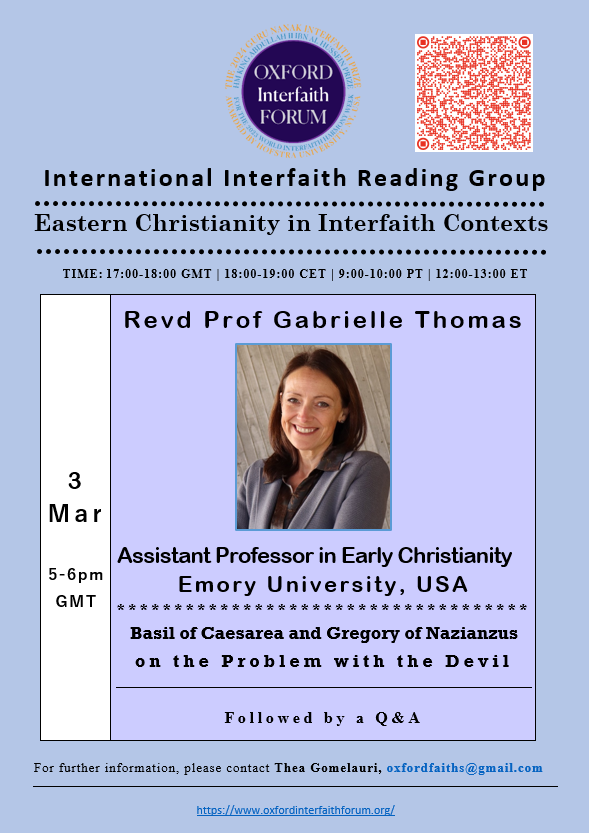
- Byzantine Aristocrat, Monk, Mystic and Dissident: Symeon the New Theologian (949-1022)
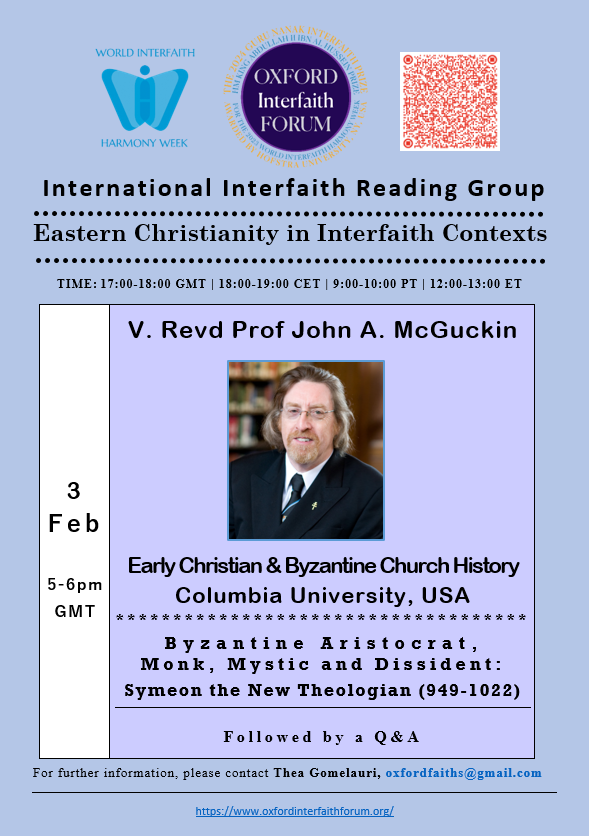
- Heavenly Hours: Creation and Time in the Syriac Testament of Adam
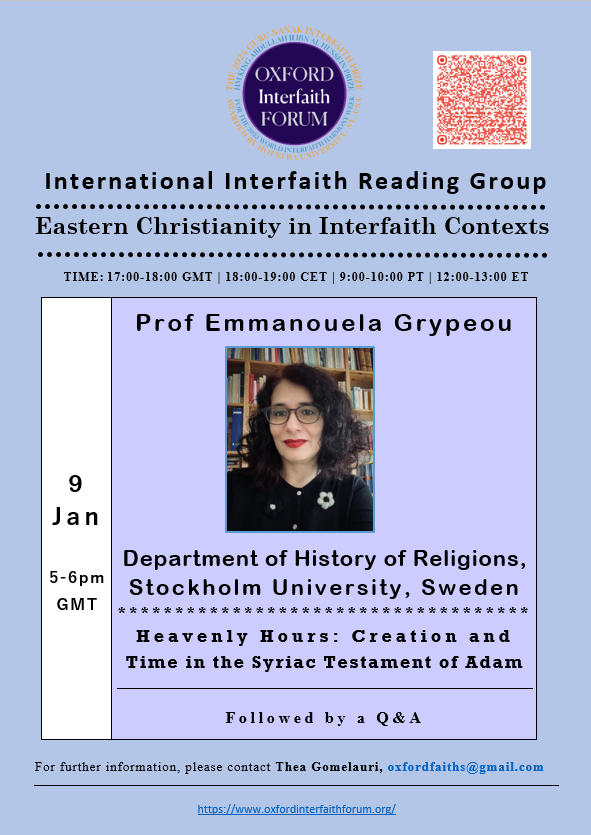
- The Monastic Homilies of Isaac of Antioch
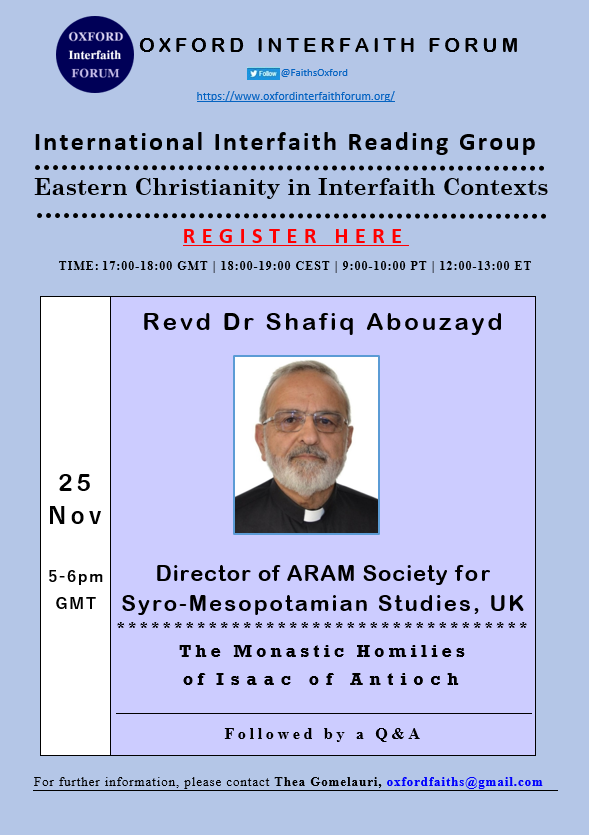
- Christian Trees
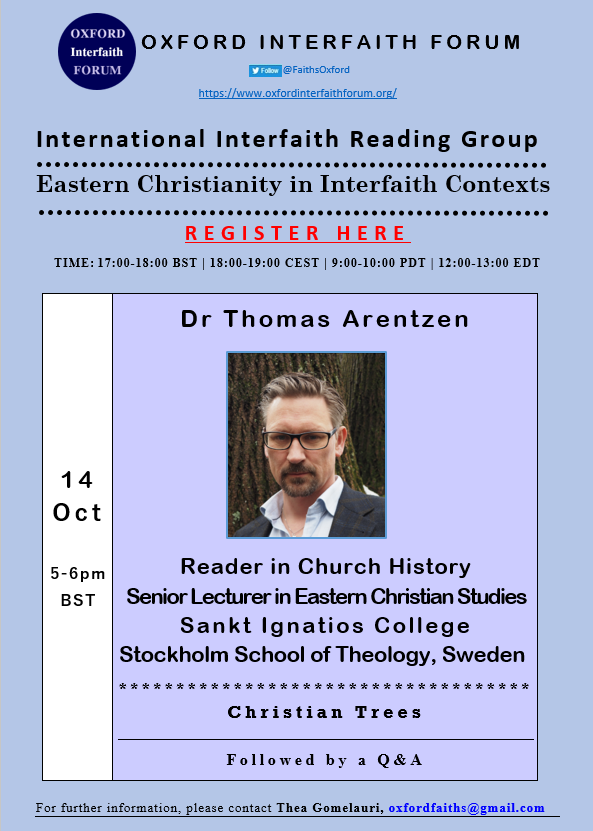
- Dialogue and Fire in a Fragmentary Syriac Martyrdom Narrative
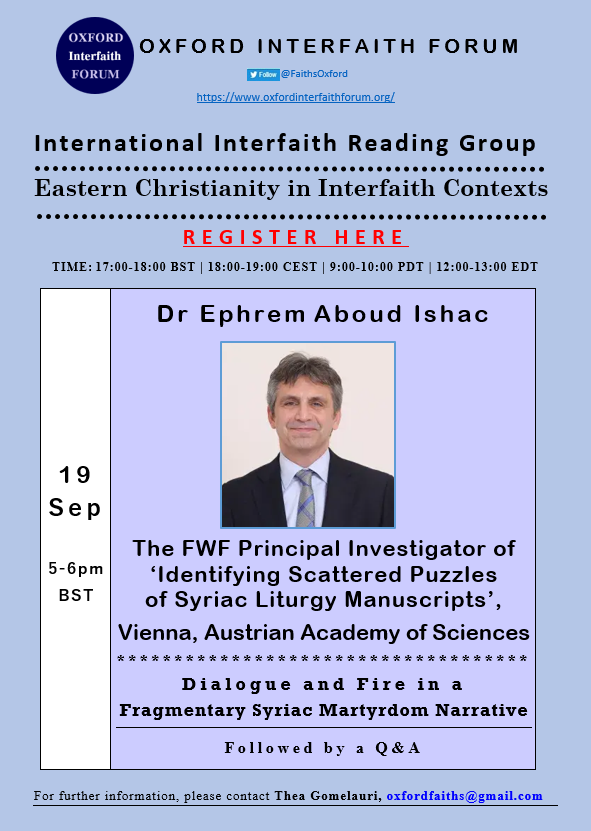
- The Origins of the First Anti-Jewish Good Friday Hymns
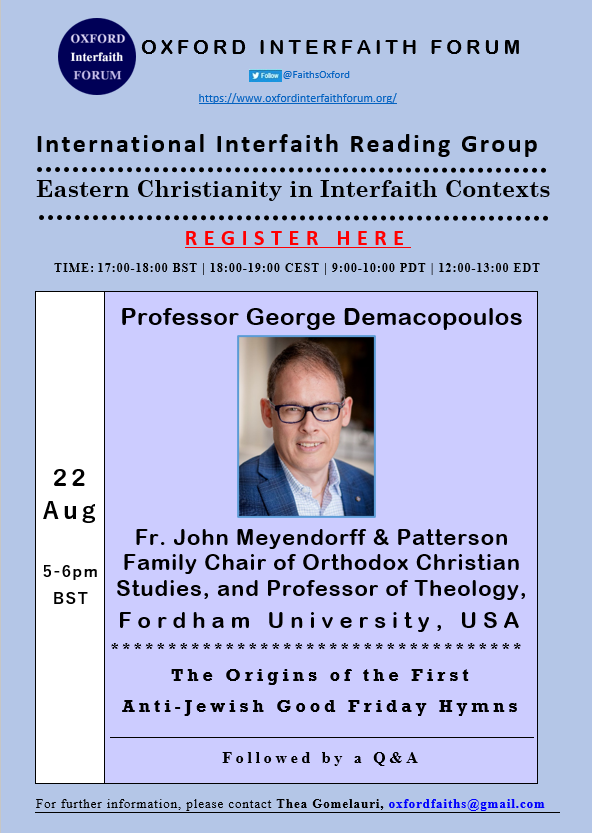
- Finding a Home: The West Syriac Context of the Clementine Epistles on Chastity
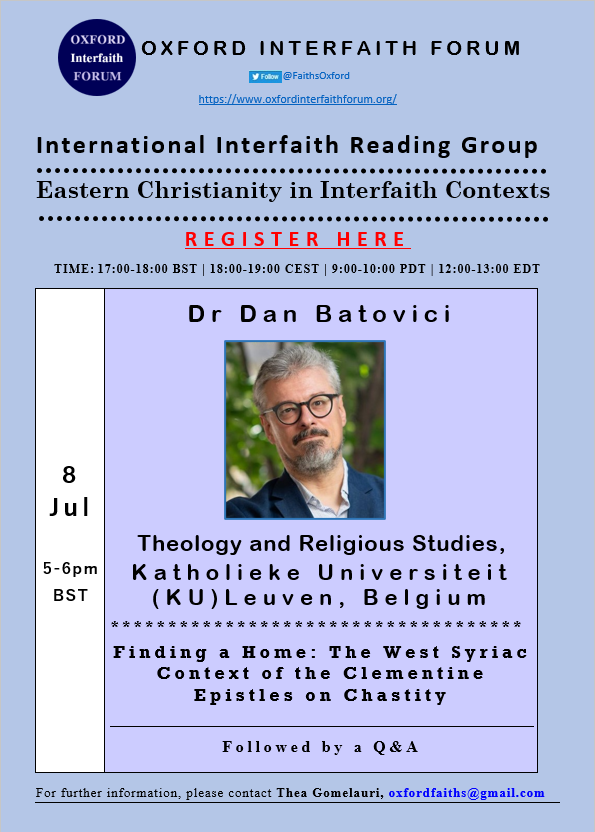
- Who was Mary, the Blessed Virgin and Mother of God? A Byzantine hagiographical narrative by the ninth-century Monk Epiphanios
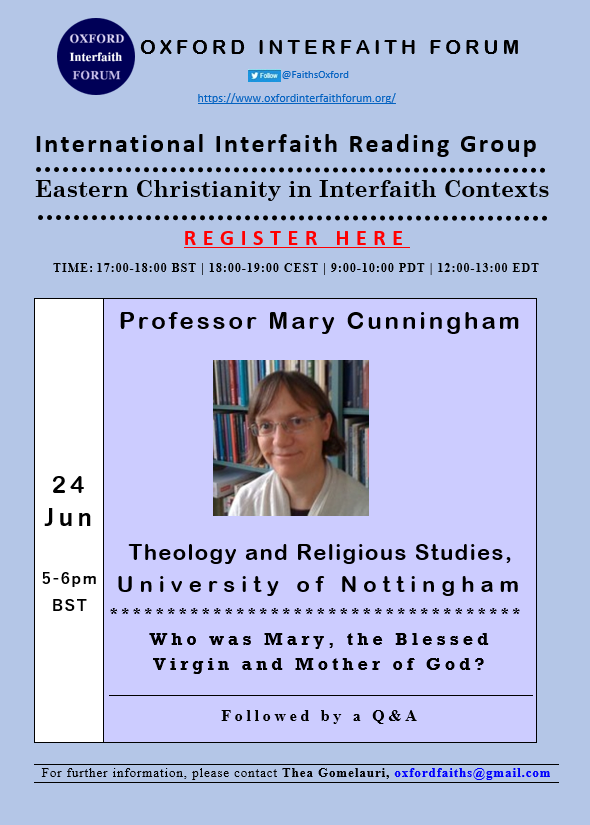
- Nikos Kazantzakis and Orthodox Christianity
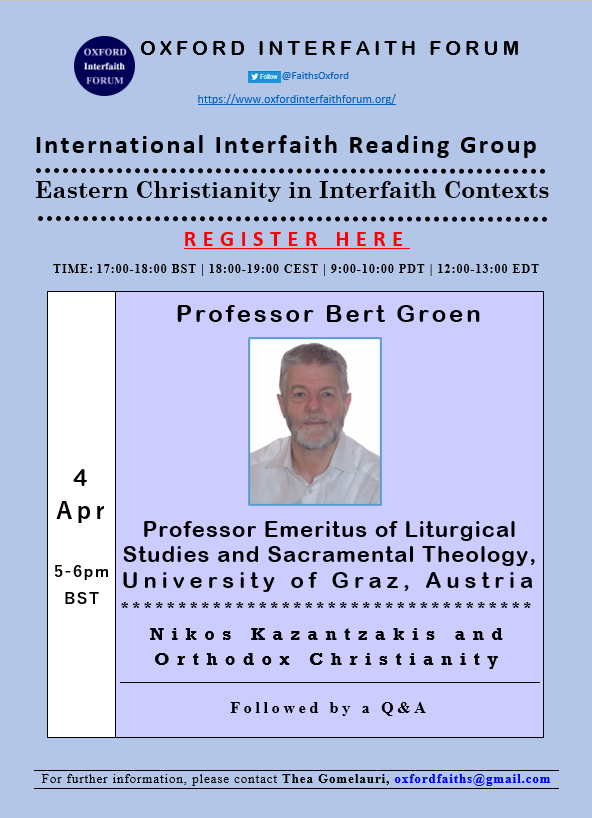
- The Miracle of Pilgrimage: A Coptic Journey to the Holy Land During the Ottoman Period
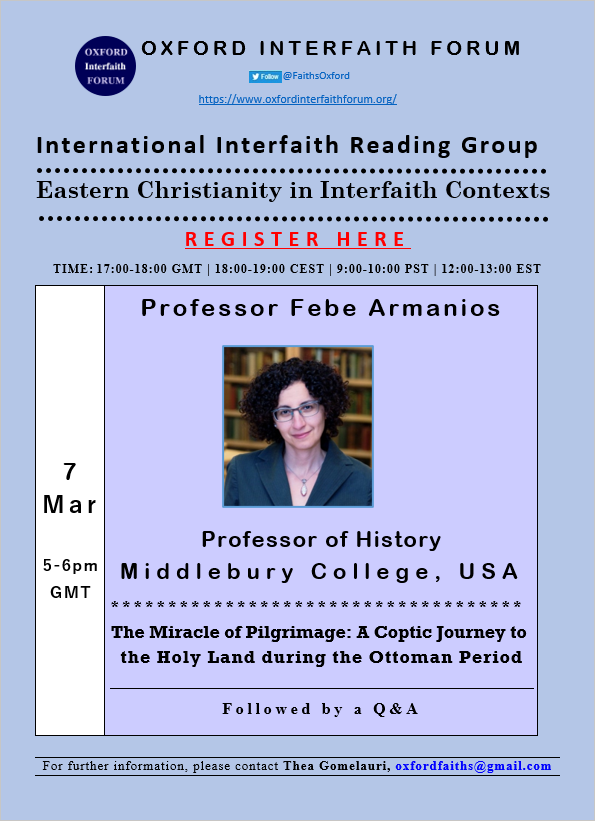
- Setting the Stage: The Rose of Performance in Studying Late Ancient Hymnody
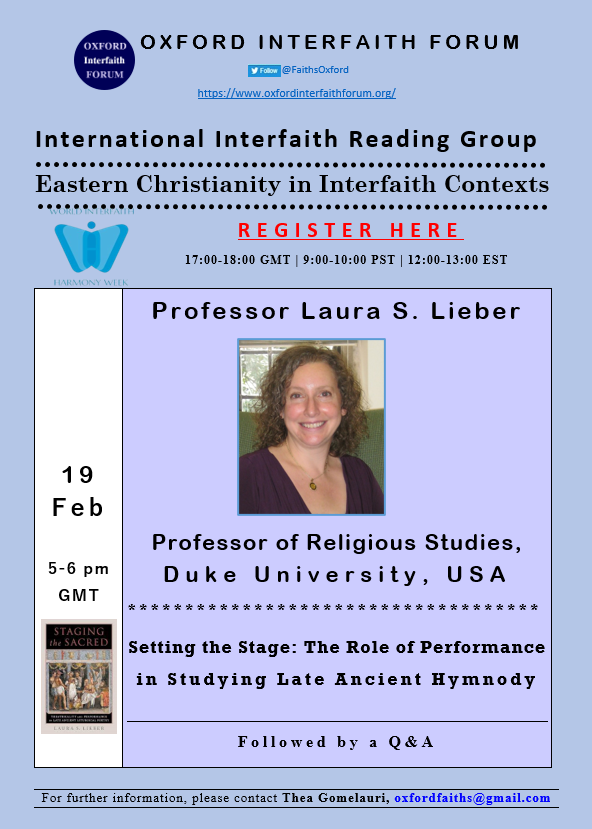
- Ephrem the Syrian and a New Beginning in Syriac Poetry
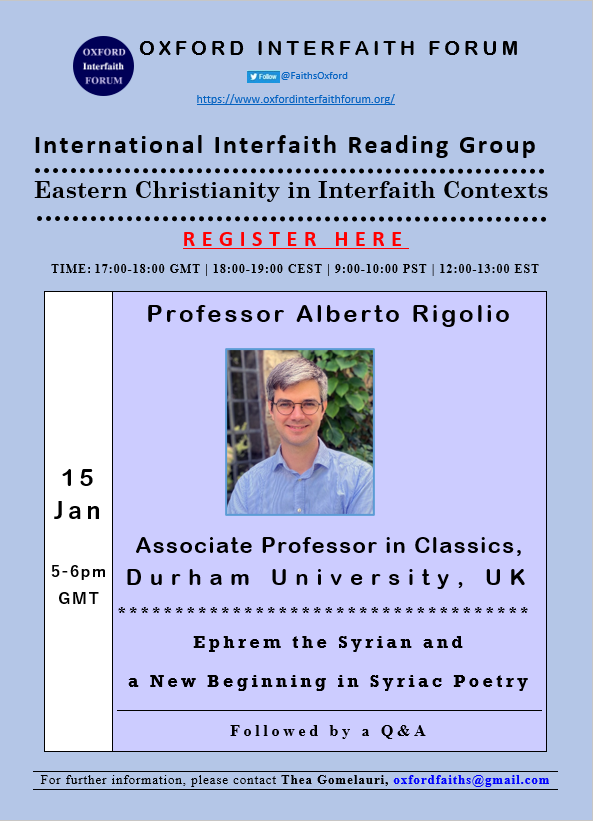
- A Jew Reads the Gospels in Syriac: Azariah de Rossi’s Critique of the Vulgate (1577)
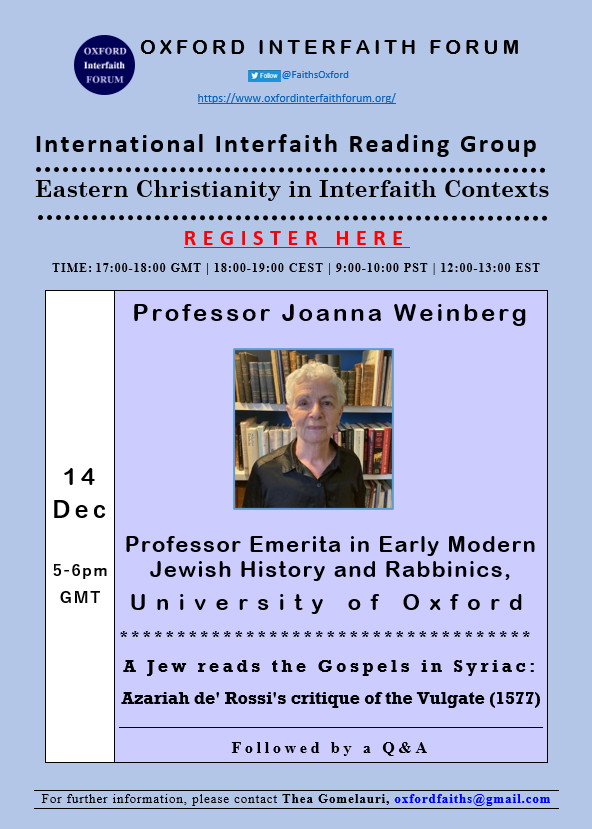
- The Manuscript Project at the Coptic Monastery of St Paul the Hermit at the Red Sea, Egypt
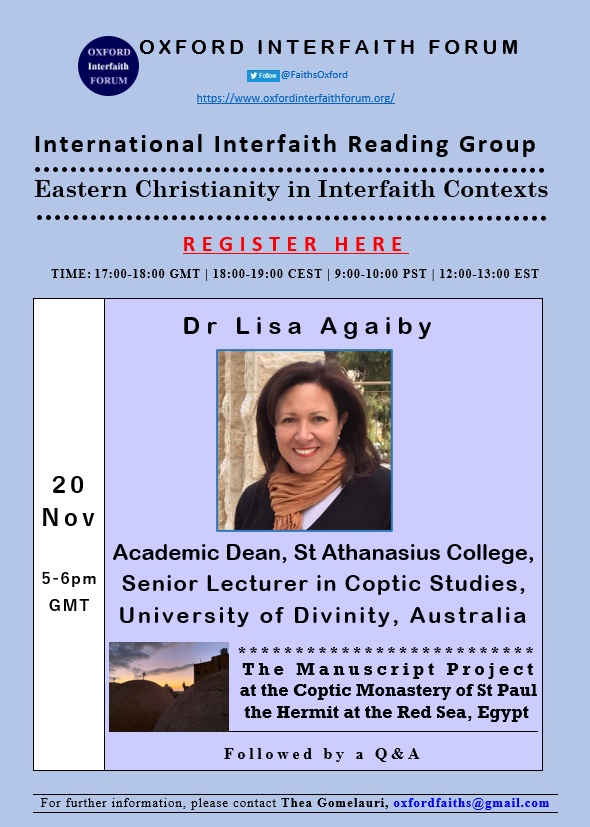
- Mary’s Ordeal: A Syriac Narrative Poem on Many and Joseph
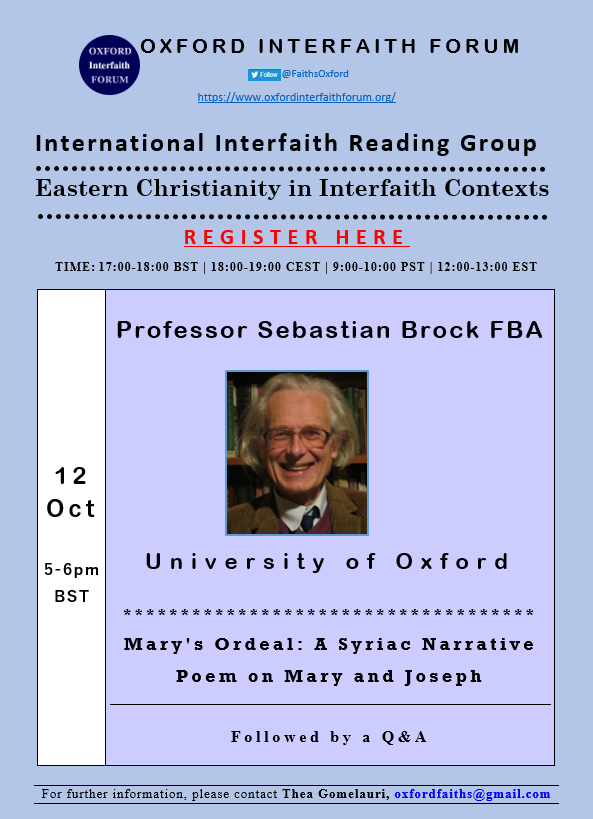
- Resurrection of the Human Body according to John of Dara’s Mimro I:4

- Gregory of Nyssa: On the Human Image of God
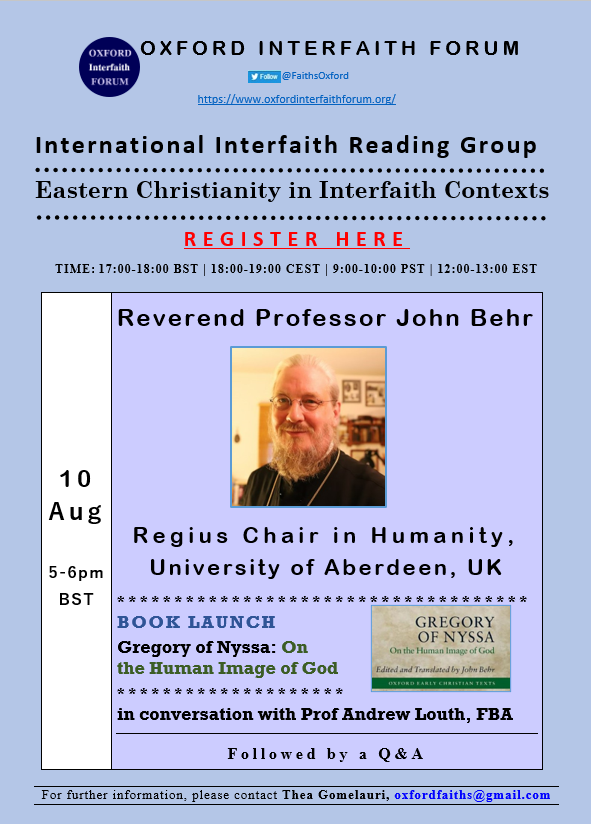
- ‘Conception by ear’ and Redemption of the Human Sensorium in Ephrem’s Thirty-fifth Madrasha on the Church
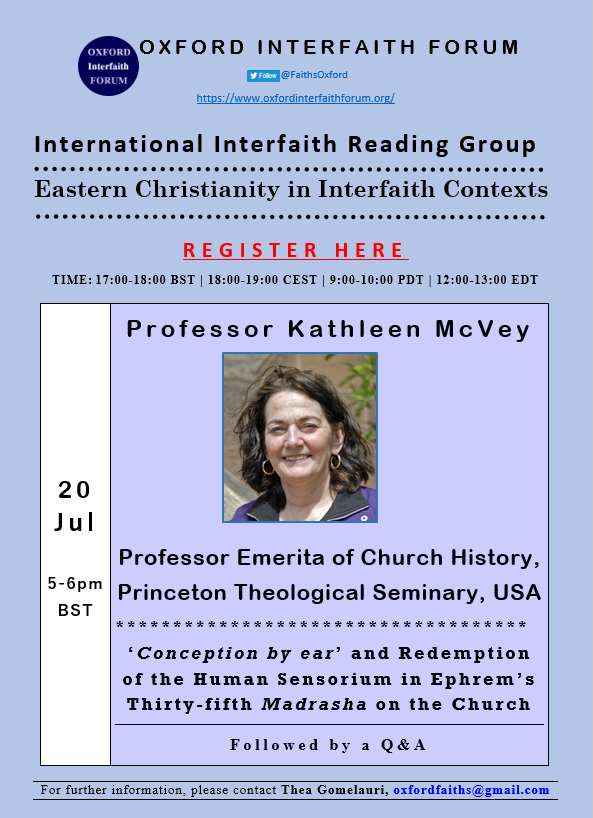
- From Edessa to South Arabia and Back: The Syriac Story of Bishop Paul and Priest John and Models of Sanctity in the Medieval Middle East
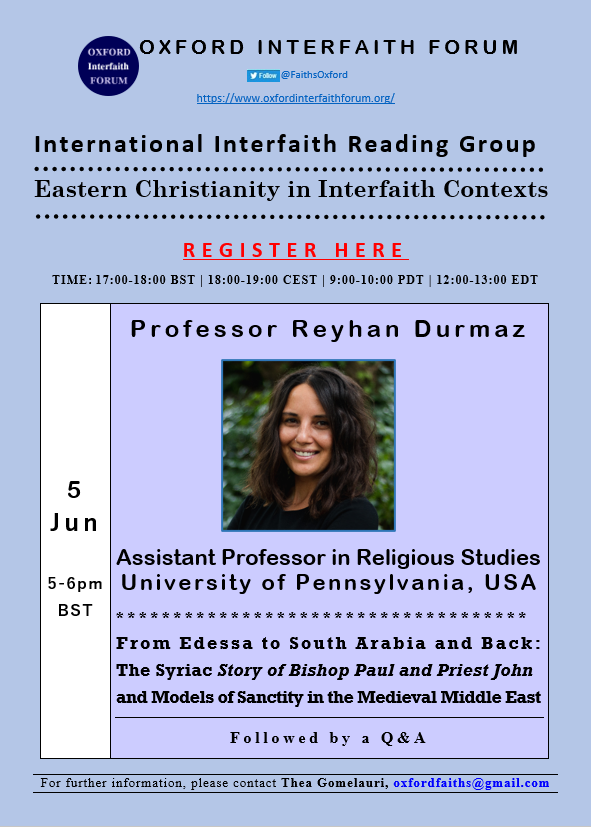
- Wrestling with Calculating-Thoughts: Mental Training according to Evagrius of Pontus
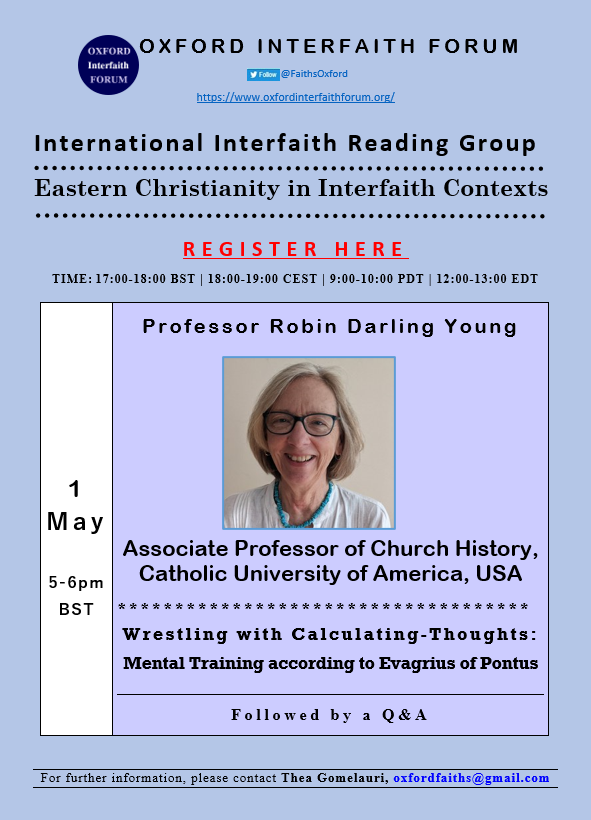
- Returning the Ticket: God and Evil in the Brothers Karamazov
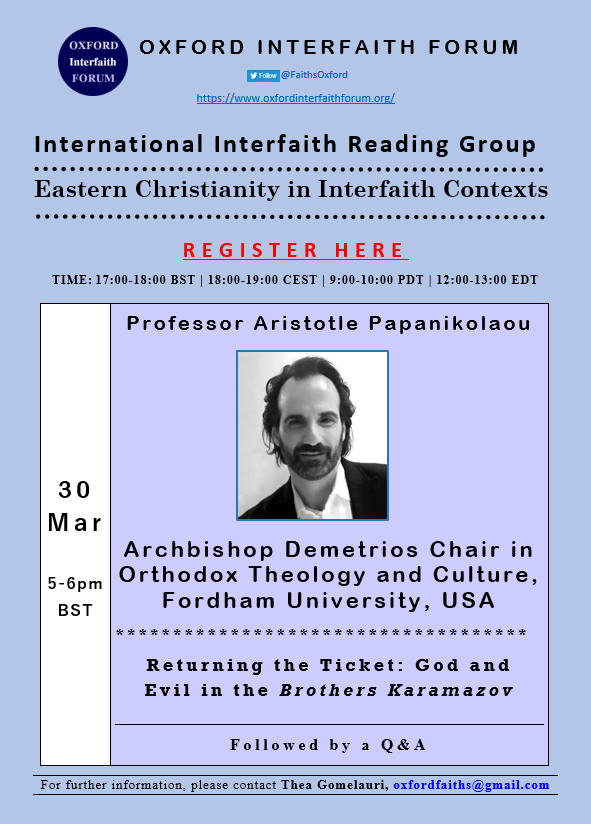
- Ecumenical Patriarch Athenagoras: an Orthodox Dialogue with Islam
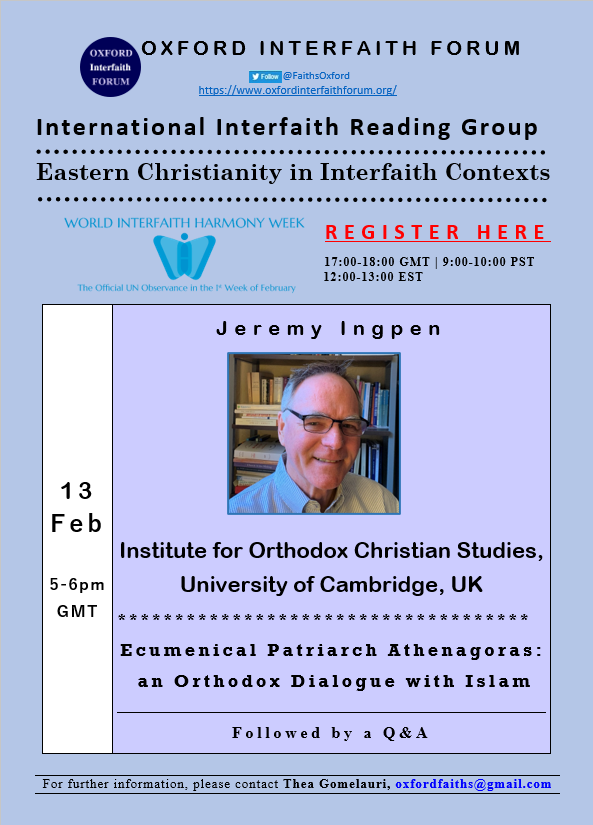
- Matta el-Meskin/Matthew the Poor: a ‘Contemporary Desert Father’ on Christian Unity
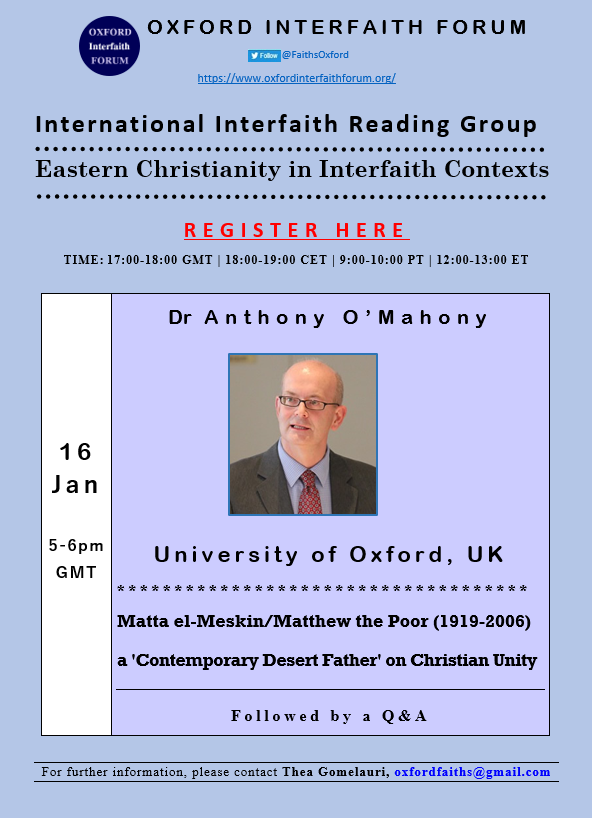
- Signs of Miraculousness: The Inimitability of Jacob of Serugh’s Teaching
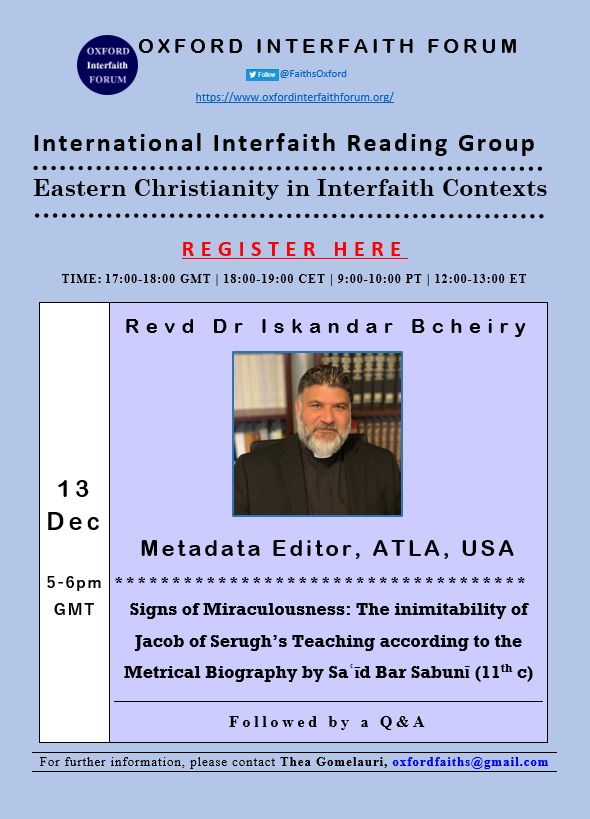
- Epistolary Style in Coptic Letters from the Late Third Century to the Early Fifth Century
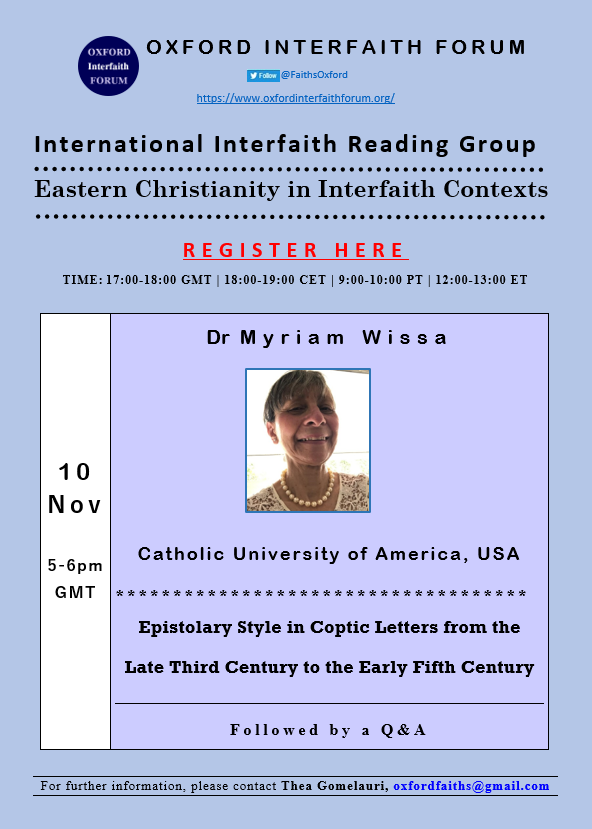
- Sarah and the Akedah: a Syriac Narrative Poem on Genesis 22
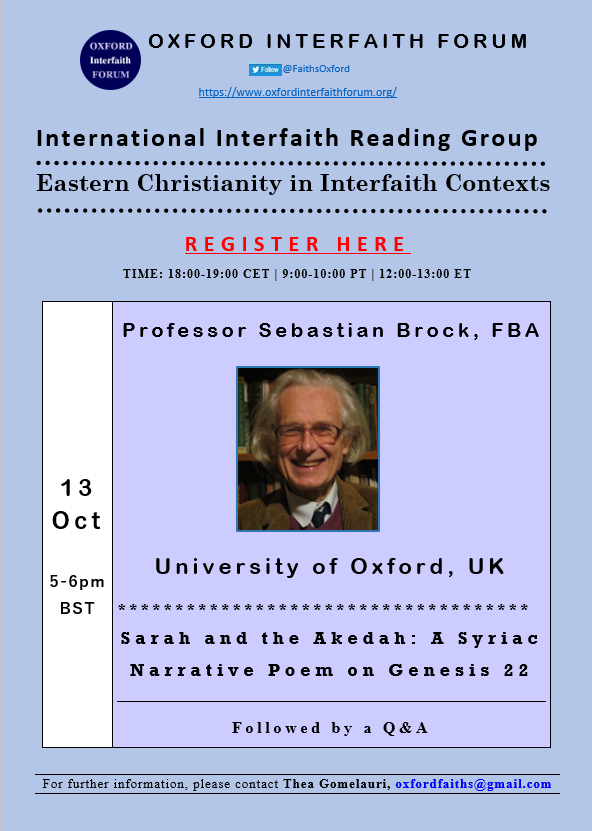
- The Paterik of the Kyivan Caves Monastery: Monk Polikarp in Discourse 14
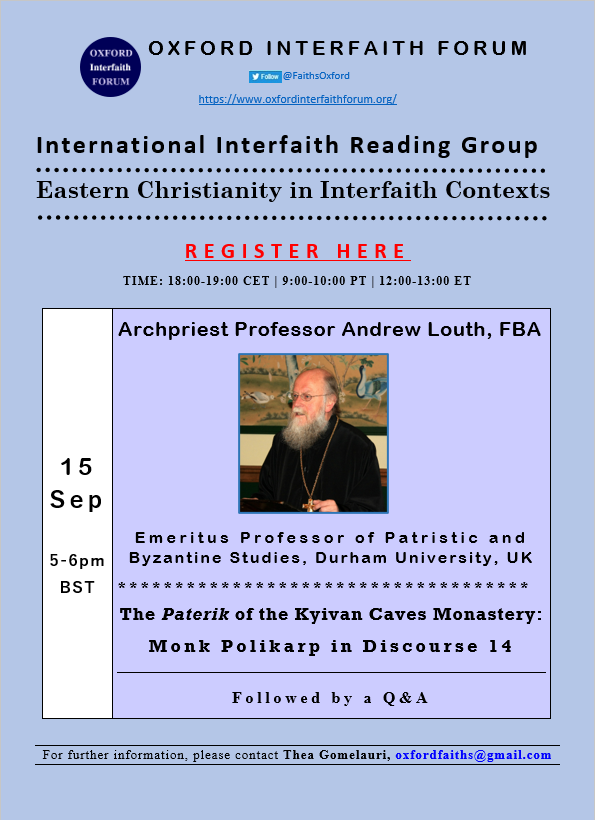
- Jacob of Sarug on the Canaanite Woman (Mt 15:21-28, Mk 7:24-30): Biblical Storytelling and Models of Faith
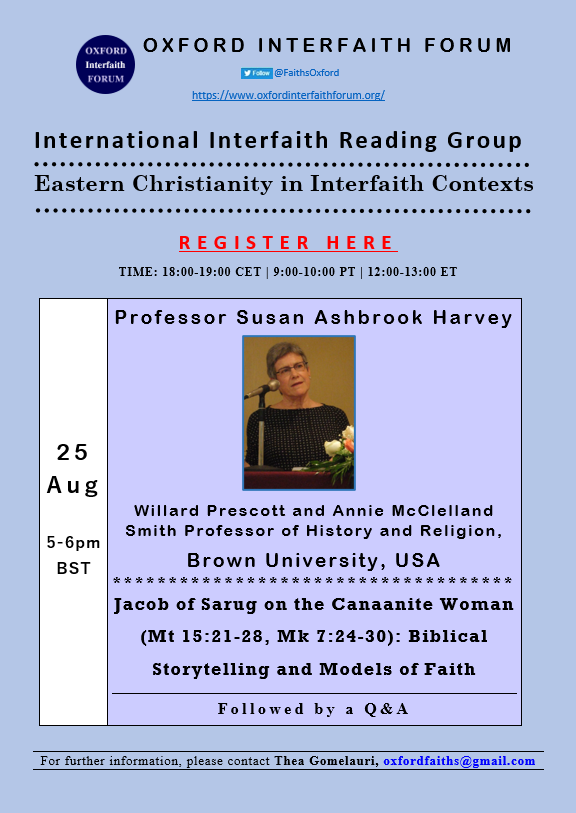
- Commemorating the saints at Turfan: Mart Shir and Mar Barshabba
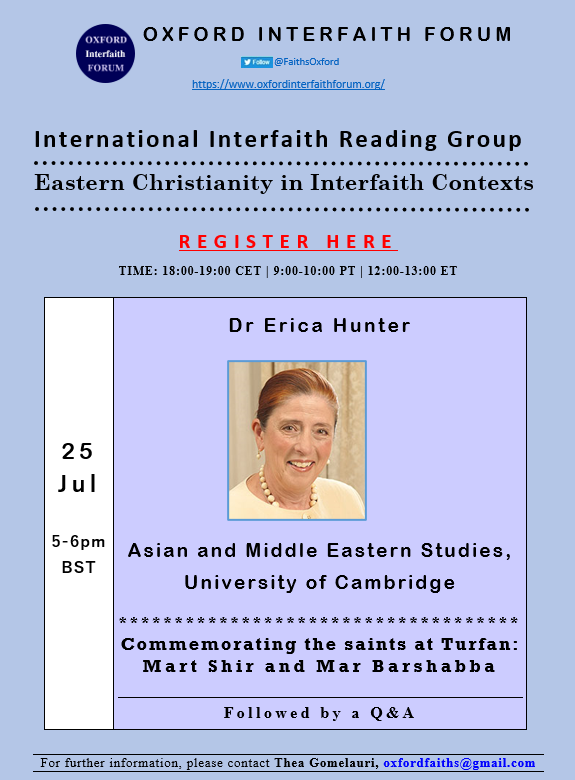
- The Opening Prayers of Saint Gregory of Narek’s Book of Lamentations
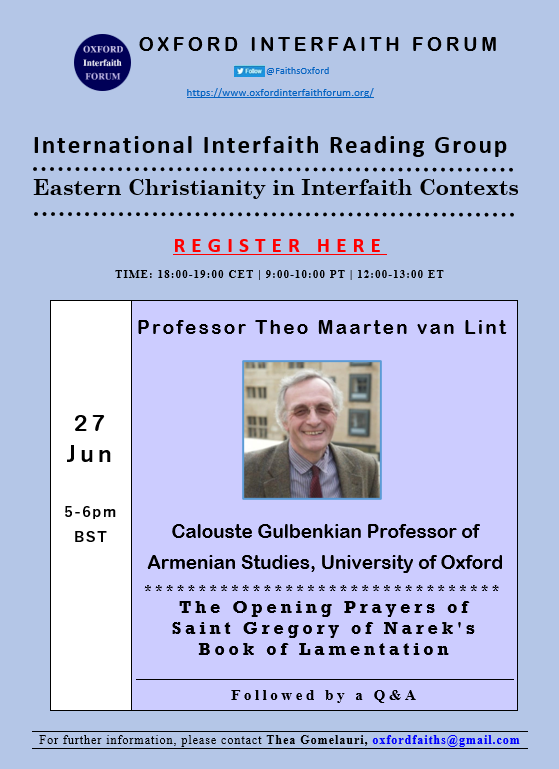
- Alexander Schmemann on Theotokos vis-à-vis Kali a Hindu Mother Goddess
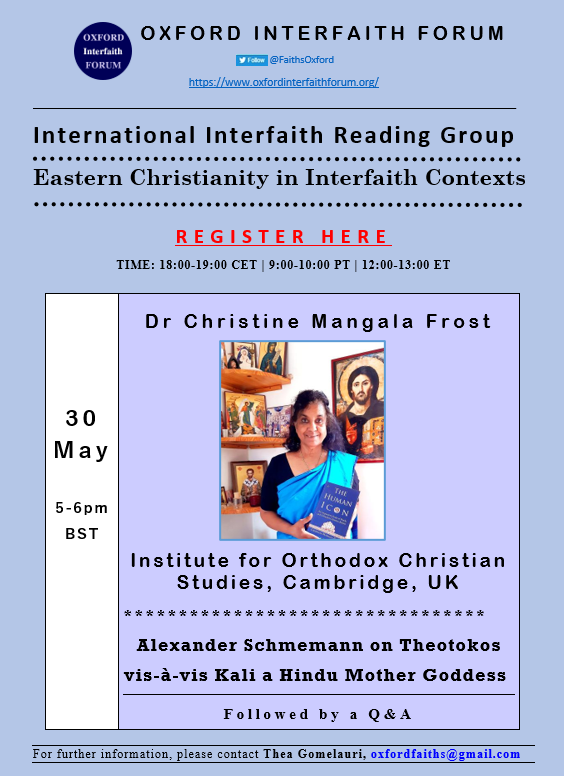
- Enoch and the Fallen Angels in the Ethiopian Tradition
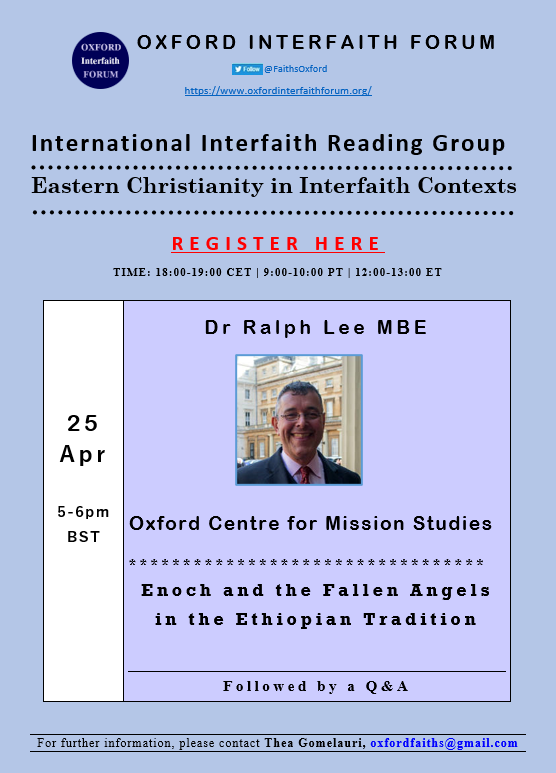
- Narsai on the Virgin Mary
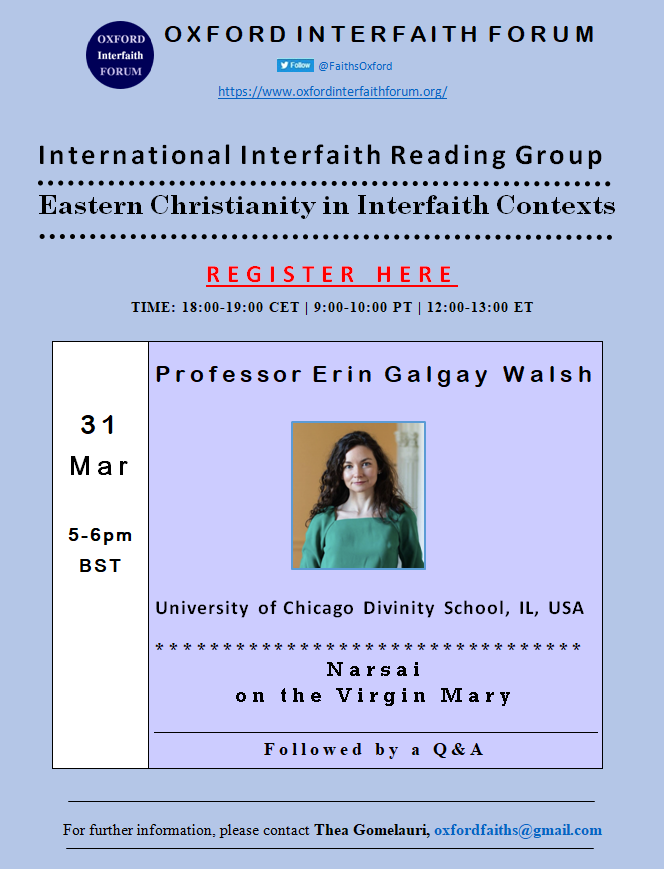
- An Anonymous Syriac Dialogue between Mary and the Angel
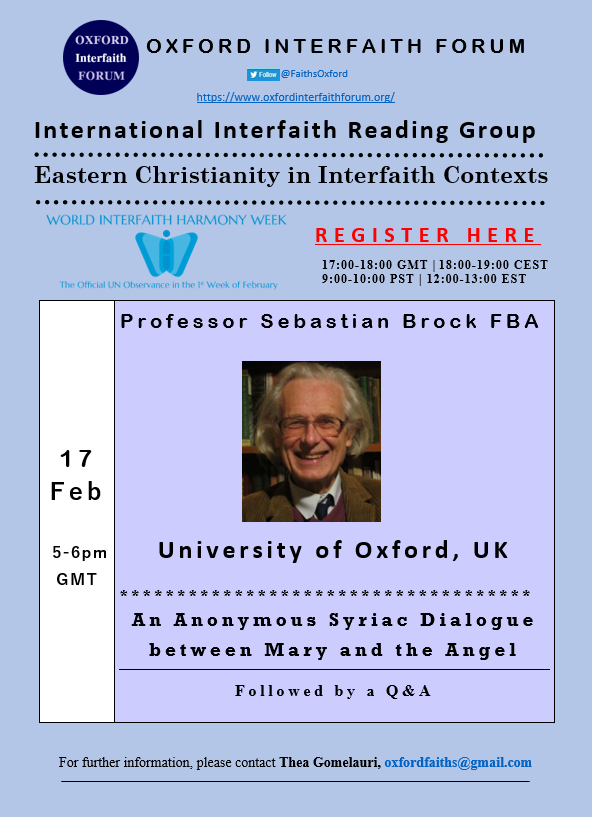
- Dadisho of Qatar: Questioning the Desert Fathers
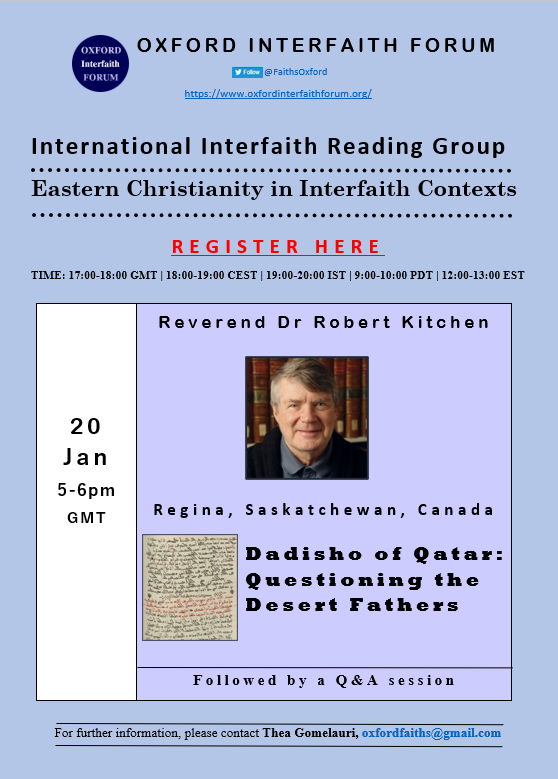
- George the Athonite on Matters of Faith and Rite, According to the Life of St George the Hagiorite
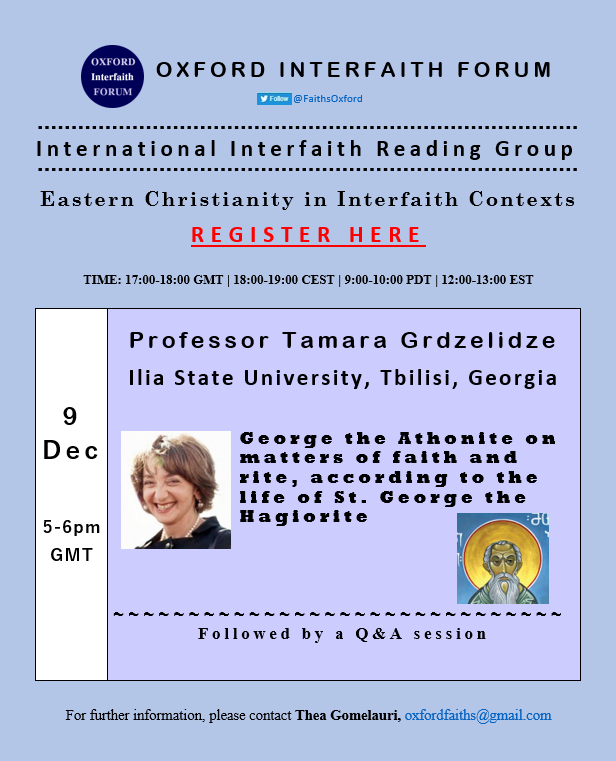
- Temple, Shekhinah and Prayer in Isaac of Nineveh’s III.VIII
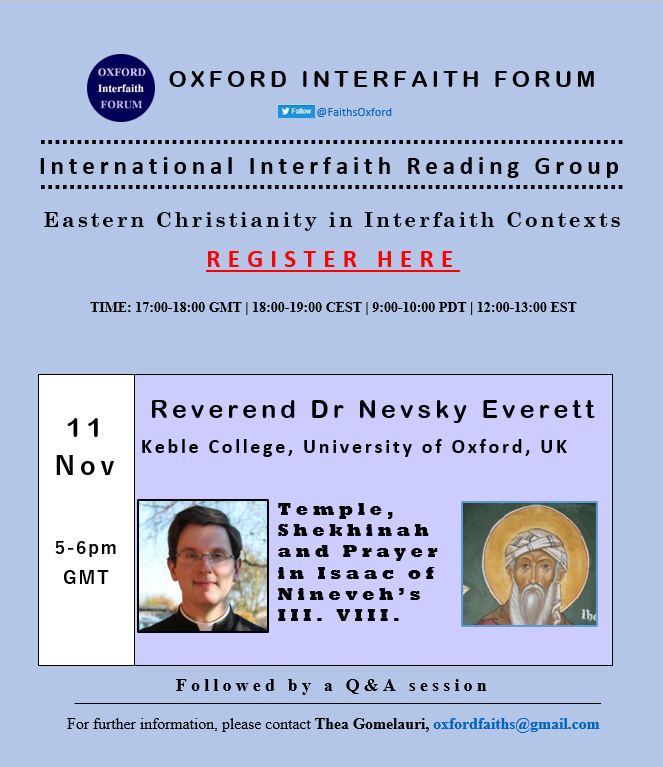
- St. Ephrem’s Commentary on Genesis Ch.3
